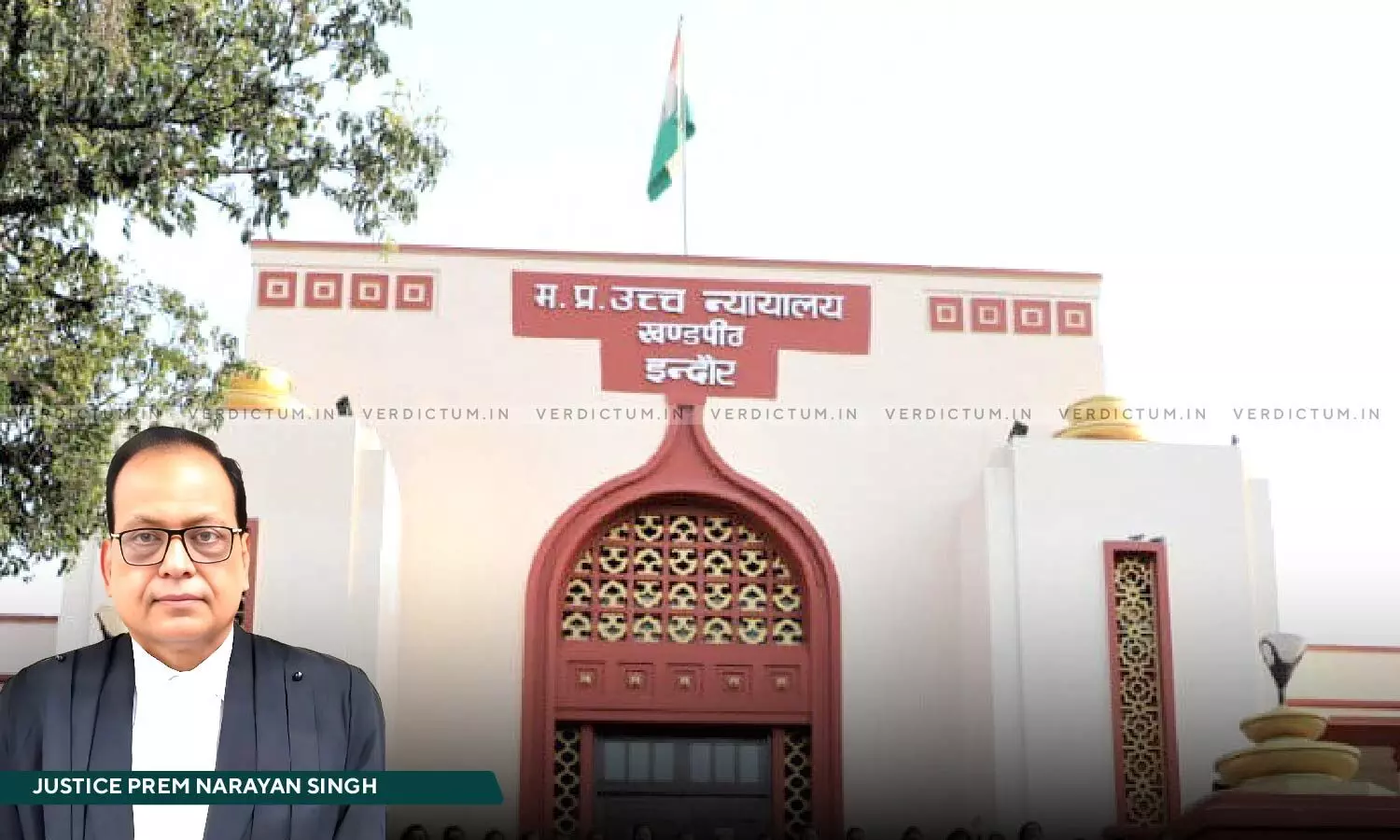
POCSO Act| Pulling Clothes And Putting Hand On Shoulder Clearly Signifies Sexual Instinct Of Accused: Madhya Pradesh HC
 |
|The Madhya Pradesh High Court, Indore Bench, held that the actions of the Appellant of pulling the prosecutrix's clothes and putting his hand on her shoulder signified his sexual instinct.
The Court dismissed a Criminal Appeal filed by the Appellant challenging the conviction order of the Special Court. The Special Court had convicted the Appellant under Sections 7 and 8 of the Protection of Children from Sexual Offences Act (POCSO Act).
Justice Prem Narayan Singh noted, “So far as the demurrer of sexual intent is concerned, at the time of incident, the appellant was 22 years old person. He has pulled clothes of prosecutrix and put his hand on her shoulder. This conduct clearly signified the sexual instinct of the appellant”.
Advocate Salil Ekadi appeared for the Appellant, and Government Advocate Anendr Singh Parihar appeared for the Respondents.
The Prosecutrix, a student of the 9th class, filed a report alleging that while she was returning from her relative's home, the Appellant caught her hand with bad intentions and pulled her clothes. When she cried, her uncle PW-3 came, and the Appellant fled, threatening her. Pursuant to this complaint and after completing the investigation, a charge sheet was filed under Sections 354 and 506 of the Indian Penal Code (IPC). The Trial Court, while relying on the testimonies of the prosecution witnesses and other documents, convicted the Appellant. The Appellant approached the High Court by way of a Criminal Appeal challenging the judgment of the Special Court, whereby he was convicted for the offence under Sections 7 and 8 of the POCSO for three years of rigorous imprisonment with a fine of Rs.4,000/- and default stipulation.
The Court observed that the testimonies of the prosecution witnesses have not been controverted in their cross-examination. The Court noted that the issues for determination were, “whether the appellant has assaulted the prosecutrix to outrage her modesty with sexual instinct” and “whether the prosecutrix is coming under the purview of 'child' who is below the age of 18 years”.
The Court referred to the cases of Jarnail Singh v State of Haryana [(2013) 7 SCC 263] and Ramswaroop v State of Madhya Pradesh [2023 Lawsuit (MP) 435]. The Court observed that the scholar register or admission register would be used to ascertain the age of the prosecutrix. The Court noted that the scholar register revealed that the prosecutrix was born on March 6, 2006; therefore, she was only 14 years and eight months old at the time of the incident.
Furthermore, the Court placed reliance on the Supreme Court in the cases of Takdir Samsuddin Sheikh v State of Gujrat and another [AIR 2012 SC 37] and Pundappa Yankappa Pujari v State of Karnataka [2014 LawSuit (SC) 516]. The Court noted that In criminal cases involving molestation or sexual assault, the victim's testimony should be considered as that of an injured witness. The Court emphasised that in criminal law, the evidence provided by an injured person carries significant weightage, especially in cases of sexual assault, where the victim is less likely to accuse someone falsely.
The Court emphasised that the testimonies of both the victim and the witnesses, even with minor discrepancies, must be considered. The Court observed that in cases of sexual assault or molestation, the victim's testimony is generally regarded as reliable and truthful. The Court asserted that it is unlikely that an injured witness would falsely accuse someone to protect the actual culprit. The Court referred to the case of Ramesh Baburao Devaskar and others v State of Maharashtra [(2007) 13 SCC 501] and noted that any prosecution for an offence under the POCSO Act requires a culpable mental state on the part of the accused, and such shall be presumed by the Special Court. The Court held that the Trial Court has appropriately sentenced the offender under Sections 7 and 8 of the POCSO Act instead of Section 354 of the IPC.
“So far as the sentencing part is concerned, this case is related to sexual offence and looking to the age of the appellant and age of prosecutrix, no leniency is required in the circumstances of the case.As such, the learned trial Court has correctly punished the appellant”, the Court observed.
Accordingly, the Court dismissed the Appeal and affirmed the impugned judgment.
Cause Title: Nageshwar v The State of Madhya Pradesh